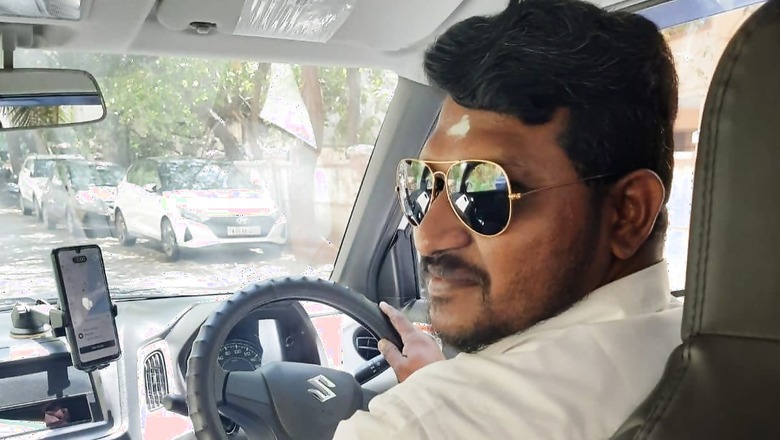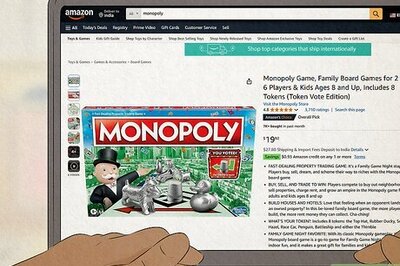From ISRO Scientist To Cab Service Worth Rs 2 Crore: How Tamil Nadu Man Launched Successful Business

views
An Uber ride became an inspirational moment for Ramabhadran Sundaram, director of alumni impact at Teach For India, when he found out that his driver was a former ISRO scientist-turned-entrepreneur.
In a post on LinkedIn, Sundaram gave details about Uthaya Kumar ST, who now runs a cab service business fleet worth Rs 2 crore. He said this ride “changed my relationship with drivers and unheard stories waiting to inspire” while the driver “inspired him with leadership lessons”.
“I realised that when I take cabs, I often catch up on email, take calls or keep looking at the red lines on Google Maps hoping they would magically disappear,” Sundaram said, adding that he would like to know more about such inspirational stories, if any, in the comments.
According to the post, Uthaya is from a small town in Tamil Nadu’s Kanniyakumari district. He finished his MPhil and PhD in statistics before joining the Indian Space Research Organisation (ISRO), where his role involved minimising bubbles in liquid fuels to keep its density in check. This avoids blasting during the launch.
The LinkedIn post said he was employed at ISRO for seven years following which he became an assistant professor at an engineering college. He then decided to try his hands at entrepreneurship and started his cab business.
How did the cab business start?
Sundaram said in 2017, Uthaya took help from some friends to pool money and start his cab service, ST Cabs, named after his parents Sukumaran and Thulasi. Today, he and his brother manage a fleet of 37 cars with an annual revenue worth Rs 2 crore. They have only three more years of EMIs to pay.
He also mentioned some entrepreneurial lessons that Uthaya spoke about during the cab ride, which he said are applicable across sectors.
What is the business model?
Sundaram further said Uthaya started with a niche, and then diversified. A market opportunity in IT/ITES companies helped him grow to three pick-ups and drop-offs daily at Rs 2,500 per trip. This made the cash flow easy early on in the business, he said.
The businessman is now testing Uber and exploring options with the film industry as well. Another lesson he talked about was the role of employees in his business, who work as partners. He does not pay his other drivers a salary, but they are on a 70:30 revenue-sharing partnership. Some of his drivers have now taken ownership of growing the fleet on the basis of a 30:70 split.
Uthaya also advised investing in sustainable growth. He sets aside Rs 1.5 lakh per month for living expenses and saves to build accommodation facilities for his migrant driver-partners. He also pays for the education expenses of four children back in his hometown as well.
What were the challenges?
None of this came easy. Uthaya’s business was relatively new when Covid struck and the lockdown was enforced. As is known and documented, the pandemic had an adverse impact on businesses around the world, especially those similar to Uthaya’s.
Through the pandemic, the man had to wear hazmat suits and drive to Odisha and Kolkata to drop people just for new business to survive the lockdown’s impact.















Comments
0 comment